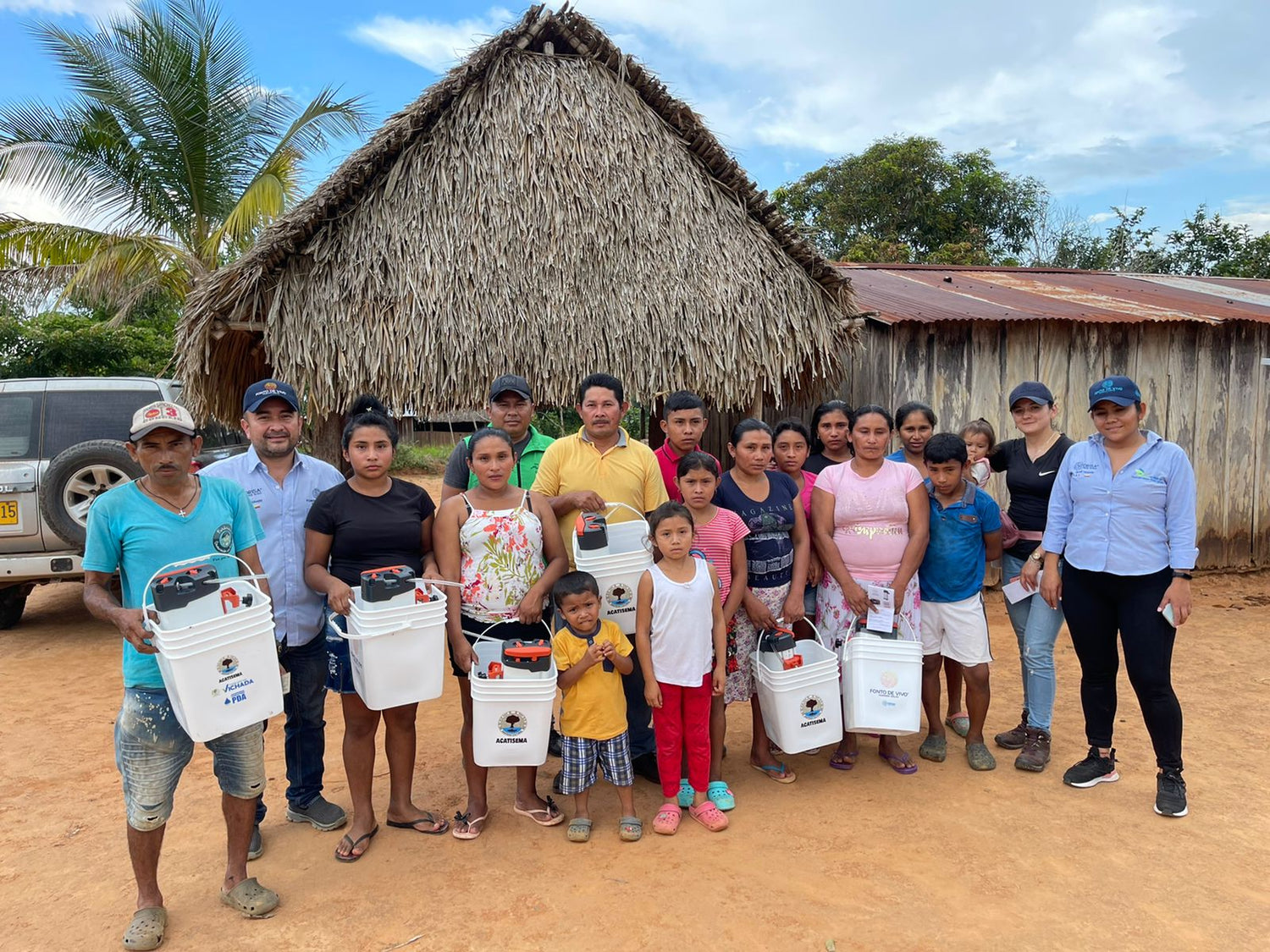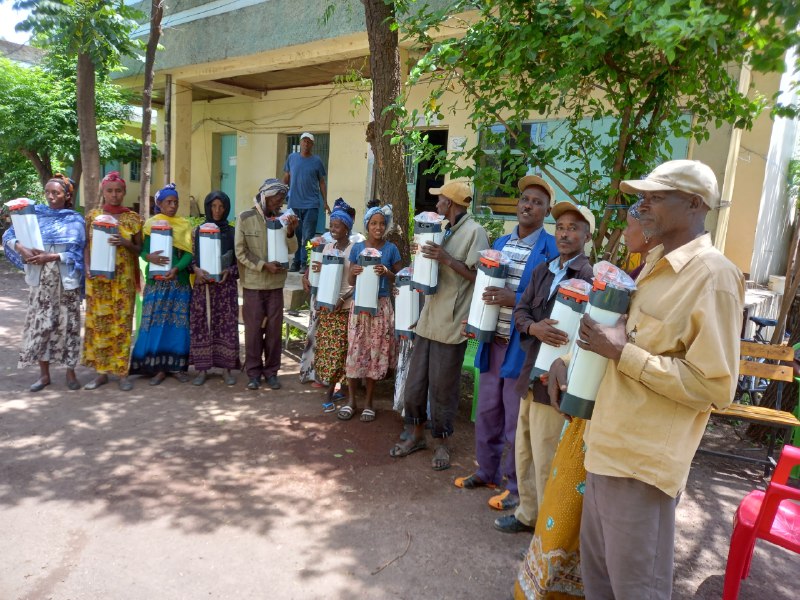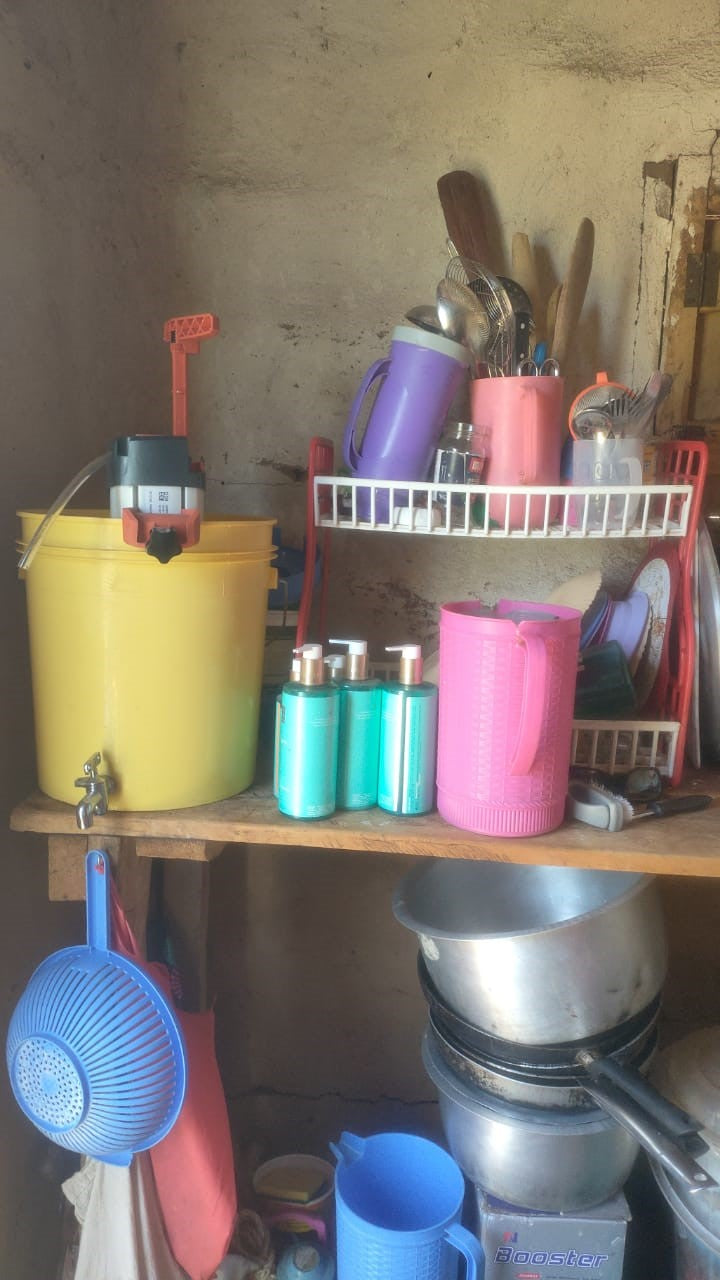
Enabling everyone to live in dignity
In many parts of the world, access to quality drinking water is limited due to contamination by bacteria, viruses, pathogens, chemicals or pollutants. Home filtration allows families to purify water at source, reducing the risk of water-borne diseases. It is an effective way of improving the health and living comfort of rural and isolated populations. What's more, self-sufficiency in clean water is the common denominator of hygiene conditions and a propensity for education, and fosters healthy social relations within a community. It is therefore essential to provide sustainable access to quality water.
Water is a fundamental right
More than 2 billion people still without access to drinking water
The shortage of drinking water is a major challenge, leading to an increase in water-related illnesses, unsatisfactory hygiene and increased health risks. The lack of clean water limits access to safe water resources for basic and physiological needs, compromising the health, well-being and comfort of the most deprived populations. This precarious situation encourages the proliferation of infectious and water-borne diseases, with severe repercussions on health, particularly among children and the most vulnerable individuals. In addition, the lack of good sanitary conditions and clean water creates a context conducive to contamination, the spread of pathogenic micro-organisms and the spread of infections within communities, exacerbating health risks, epidemics and humanitarian emergencies.
-
LACK OF DRINKING WATER
The lack of clean water for drinking, cooking and personal hygiene compromises people's health, well-being and quality of life on a daily basis, and increases their vulnerability.
-
WATER-BORNE DISEASES
Contaminated water contributes to water-borne diseases, diarrhoea, cholera, dysentery and other intestinal infections, which have serious consequences: hospitalisation or death among children and vulnerable people.
-
UNSATISFACTORY HYGIENE
The lack of clean water limits personal hygiene, effective hand washing and the cleaning of food and cooking utensils, increasing the risk of contamination, disease and epidemics.
-
HEALTH HAZARD
The lack of drinking water and precarious sanitary conditions create an environment conducive to the proliferation of bacteria, viruses and parasites, and to the contamination of water, soil and food, thereby increasing health risks.

Ban Ki-moon, former Secretary-General of the United Nations
"Water is at the heart of sustainable development. Whether for health, food security or poverty reduction, water plays a central role in achieving our global goals."

ORISA® water purifier
✔️ Manual ultrafiltration
✔️ Lightweight, portable system: 2kg and 42cm
✔️ Robust and réparable
✔️ 3L/min
✔️ 20,000L of water per ultrafiltration membrane
✔️ Long-lasting membrane at remplacer
✔️ LOG 8 - 99.999999% efficiency: bacteria and protozoa
✔️ LOG 5 - 99.999% efficiency: virus
✔️ Innovative integrated cleaning achieved in less than 30sec
CLEAN WATER FOR EVERYONE
Accompanying your challenges concerning the water autonomy of populations
-
HEALTH EDUCATION
People isolated from water infrastructures and networks are deprived of continuous access to quality water. However, these populations are not always made aware of the dangers of unsafe water and the benefits of good hygiene practices. These are essential elements in tackling water-related problems.
-
BETTER WATER QUALITY
Filtration systems need to be able to treat various types of contaminants, to provide safe and healthy water for families. Our solutions offer high-performance filtration quality thanks to ultrafiltration, LOG 5 for viruses and LOG 8 for bacteria. They meet the highest water filtration standards set by international organisations.
-
AUTONOMY AND DIGNITY
Our water filtration equipment is self-sufficient, operating manually, without chemicals or electricity. They are therefore totally suited to home filtration by families living off the grid, providing them with safe access to healthy water. They adapt to people's lifestyles thanks to their mobility, which does not interrupt access to healthy water during transhumance.
-
SUSTAINABLE ACCESSIBILITY
One of the major challenges of water access programmes lies in a sustainable home filtration approach. Because water is vital, preserving people's health and freeing them from water-borne diseases requires alternative, autonomous solutions that enable the production of healthy water to be individualised over time. That's why our equipment is durable and repairable.
Our deployments for household filtration

FRENCH GOVERNMENT AND COLOMBIAN MUNICIPALITY
HOUSING FILTRATION IN RURAL COLOMBIA
Deployment of 3,190 ORISA® water purifiers in the Vichada region to bring clean water and autonomy to indigenous communities remote from water networks. A large-scale programme for more than 8,500 beneficiaries in 300 completely self-sufficient communities, 51 schools and 10 health centres.

UN ENFANT PAR LA MAIN
ACCESS TO WATER IN REMOTE AREAS OF ETHIOPIA
Deployment of 180 ORISA® water purifiers in the Oromia region of Ethiopia by Un Enfant Par La Main and ChildFund Ethiopia, financed by Capgemini.

DEPLOYING ORISA®
Contact us to distribute our water filtration solutions within your humanitarian programmes to equip families in rural and isolated areas or transhumant populations.

A sustainable solution for remote families
The rural context, particularly in areas not served by a drinking water network and dependent on turbid surface water sources, is ideal for the adoption of home treatment solutions. The positive impact on health resulting from effective water treatment is undeniable. Compared with other methods, ultrafiltration offers better health protection. This improvement in water quality is particularly crucial in already vulnerable populations, such as the elderly, the sick, young mothers and children, where poor-quality water could worsen existing health conditions, or even necessitate travel to health centres, thereby increasing the risk of weakening.

Continuous access to clean water
In all the situations evaluated, the use of the ORISA® purifier for on-site filtration proved to be a cost-effective option compared with traditional filtration methods at source. What's more, this solution offers additional protection against the risk of viral diseases.
By distributing this purifier to families, continuous access to safe, treated water is guaranteed. This is particularly beneficial in contexts where water access conditions may have deteriorated following the departure of a post-mission NGO, providing sustainable support beyond the refugee camp.

Adaptability for mobile populations
Portability is an essential criterion for offering a solution that is perfectly suited to nomadic populations. These communities, which are generally located near water points, have to deal with water that is often cloudy and of mediocre quality. They regularly transport equipment and are often sidelined by the authorities because of their linguistic peculiarities and their remoteness from urban areas. Long-term monitoring is a challenge common to all water filtration solutions, but opportunities exist thanks to the autonomous solutions with which these populations are equipped.